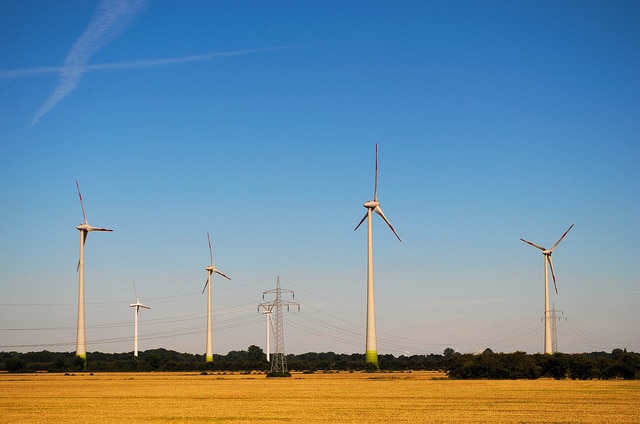Arrangements established by law whereby undertakings are compensated for any extra payments they make to producers of green electricity are likely to bring those payments under the control of the state. Those payments will then be classified as state resources regardless of whether they are managed by private entities. Introduction On 10 May 2016, the General Court issued its […]
State Aid Law
Blog
State Aid Uncovered Blog
In Lexxion’s State Aid Uncovered blog, Prof. Phedon Nicolaides publishes weekly critical analyses of recent State aid judgments and decisions. Each post presents the key points of a court judgment or EU Commission decision, places it in the context of similar case law or practice, assesses the underlying reasoning and highlights any inconsistencies or contradictions.
Guest contributions from other State aid experts will also be published on the blog at irregular intervals to complement the content of the blog posts.
- Germany ×
31. May 2016 |
State Aid Uncovered
by Phedon Nicolaides
3. December 2015 |
Guest State Aid Blog
by Emanuela Matei
The following blog post is another contributory piece by Emanuela Matei, Associate Researcher at the Centre of European Legal Studies, Bucharest. Matei holds a Juris Master in European Business Law (Lund University, June 2012), a Magister legum (Lund University, June 2010) and a BSc in Economics & Business Administration (Lund University, June 2009). We are very glad to welcome her […]
3. July 2014 |
State Aid Uncovered
by Phedon Nicolaides
Activities which are part of the performance of public duties are non-economic in nature [e.g. spatial development]. Public funding of these activities does not constitute State aid. The transfer of resources from one level of government to another is transfer between public authorities and does not constitute State aid. Competitive selected developers obtain no advantage. Purchasers of subsidised assets who pay market prices […]
12. June 2014 |
State Aid Uncovered
by Phedon Nicolaides
Price Discounts and Compensation for Public Service Obligations: A Case of Questionable Need for Aid
SGEI can be defined and public service obligations can be imposed only when the market underprovides. The parameters of compensation must be determined in advance. Public service compensation may not exceed the next extra costs of the SGEI or PSO. Member States are free to devise their own method of compensation, but irrespective of the method used, compensation must comply with the basic […]
14. March 2014 |
State Aid Uncovered
by Phedon Nicolaides
Two or more enterprises may constitute a single undertaking when their owners and/or managers are related in a way that they can act jointly to exercise influence over the decision of those enterprises. Introduction On 27 February 2014, the Court of Justice rendered a judgment on the notion of “linked enterprises” following a request for preliminary ruling from a […]
8. June 2013 |
State Aid Uncovered
by Phedon Nicolaides
Introduction After the judgments of the General Court and the Court of Justice on public funding of infrastructure in the now landmark case of Leipzig-Halle, the European Commission is scrutinising more closely than ever the construction and operation of stadiums and arenas. In March 2012, the Commission opened two in-depth investigations into public funding for multi-function arenas, one in Uppsala […]
26. May 2013 |
State Aid Uncovered
by Phedon Nicolaides
Introduction Environmental aid is the second largest horizontal category of state aid, after regional aid. It accounts for about 24% of all aid to industry and services. Yet, one often hears from public officials that the current Environmental Aid Guidelines (EAG) do not provide sufficient incentives for environmental protection. The problem is that aid is calculated as a percentage not […]
- Germany ×
31. May 2016 |
State Aid Uncovered
by Phedon Nicolaides
Arrangements established by law whereby undertakings are compensated for any extra payments they make to producers of green electricity are likely to bring those payments under the control of the state. Those payments will then be classified as state resources regardless of whether they are managed by private entities. Introduction On 10 May 2016, the General Court issued its […]
3. December 2015 |
Guest State Aid Blog
by Emanuela Matei
The following blog post is another contributory piece by Emanuela Matei, Associate Researcher at the Centre of European Legal Studies, Bucharest. Matei holds a Juris Master in European Business Law (Lund University, June 2012), a Magister legum (Lund University, June 2010) and a BSc in Economics & Business Administration (Lund University, June 2009). We are very glad to welcome her […]
3. July 2014 |
State Aid Uncovered
by Phedon Nicolaides
Activities which are part of the performance of public duties are non-economic in nature [e.g. spatial development]. Public funding of these activities does not constitute State aid. The transfer of resources from one level of government to another is transfer between public authorities and does not constitute State aid. Competitive selected developers obtain no advantage. Purchasers of subsidised assets who pay market prices […]
12. June 2014 |
State Aid Uncovered
by Phedon Nicolaides
Price Discounts and Compensation for Public Service Obligations: A Case of Questionable Need for Aid
SGEI can be defined and public service obligations can be imposed only when the market underprovides. The parameters of compensation must be determined in advance. Public service compensation may not exceed the next extra costs of the SGEI or PSO. Member States are free to devise their own method of compensation, but irrespective of the method used, compensation must comply with the basic […]
14. March 2014 |
State Aid Uncovered
by Phedon Nicolaides
Two or more enterprises may constitute a single undertaking when their owners and/or managers are related in a way that they can act jointly to exercise influence over the decision of those enterprises. Introduction On 27 February 2014, the Court of Justice rendered a judgment on the notion of “linked enterprises” following a request for preliminary ruling from a […]
8. June 2013 |
State Aid Uncovered
by Phedon Nicolaides
Introduction After the judgments of the General Court and the Court of Justice on public funding of infrastructure in the now landmark case of Leipzig-Halle, the European Commission is scrutinising more closely than ever the construction and operation of stadiums and arenas. In March 2012, the Commission opened two in-depth investigations into public funding for multi-function arenas, one in Uppsala […]
26. May 2013 |
State Aid Uncovered
by Phedon Nicolaides
Introduction Environmental aid is the second largest horizontal category of state aid, after regional aid. It accounts for about 24% of all aid to industry and services. Yet, one often hears from public officials that the current Environmental Aid Guidelines (EAG) do not provide sufficient incentives for environmental protection. The problem is that aid is calculated as a percentage not […]
- Germany ×
31. May 2016 |
State Aid Uncovered
by Phedon Nicolaides
Arrangements established by law whereby undertakings are compensated for any extra payments they make to producers of green electricity are likely to bring those payments under the control of the state. Those payments will then be classified as state resources regardless of whether they are managed by private entities. Introduction On 10 May 2016, the General Court issued its […]
3. December 2015 |
Guest State Aid Blog
by Emanuela Matei
The following blog post is another contributory piece by Emanuela Matei, Associate Researcher at the Centre of European Legal Studies, Bucharest. Matei holds a Juris Master in European Business Law (Lund University, June 2012), a Magister legum (Lund University, June 2010) and a BSc in Economics & Business Administration (Lund University, June 2009). We are very glad to welcome her […]
3. July 2014 |
State Aid Uncovered
by Phedon Nicolaides
Activities which are part of the performance of public duties are non-economic in nature [e.g. spatial development]. Public funding of these activities does not constitute State aid. The transfer of resources from one level of government to another is transfer between public authorities and does not constitute State aid. Competitive selected developers obtain no advantage. Purchasers of subsidised assets who pay market prices […]
12. June 2014 |
State Aid Uncovered
by Phedon Nicolaides
Price Discounts and Compensation for Public Service Obligations: A Case of Questionable Need for Aid
SGEI can be defined and public service obligations can be imposed only when the market underprovides. The parameters of compensation must be determined in advance. Public service compensation may not exceed the next extra costs of the SGEI or PSO. Member States are free to devise their own method of compensation, but irrespective of the method used, compensation must comply with the basic […]
14. March 2014 |
State Aid Uncovered
by Phedon Nicolaides
Two or more enterprises may constitute a single undertaking when their owners and/or managers are related in a way that they can act jointly to exercise influence over the decision of those enterprises. Introduction On 27 February 2014, the Court of Justice rendered a judgment on the notion of “linked enterprises” following a request for preliminary ruling from a […]
8. June 2013 |
State Aid Uncovered
by Phedon Nicolaides
Introduction After the judgments of the General Court and the Court of Justice on public funding of infrastructure in the now landmark case of Leipzig-Halle, the European Commission is scrutinising more closely than ever the construction and operation of stadiums and arenas. In March 2012, the Commission opened two in-depth investigations into public funding for multi-function arenas, one in Uppsala […]
26. May 2013 |
State Aid Uncovered
by Phedon Nicolaides
Introduction Environmental aid is the second largest horizontal category of state aid, after regional aid. It accounts for about 24% of all aid to industry and services. Yet, one often hears from public officials that the current Environmental Aid Guidelines (EAG) do not provide sufficient incentives for environmental protection. The problem is that aid is calculated as a percentage not […]










